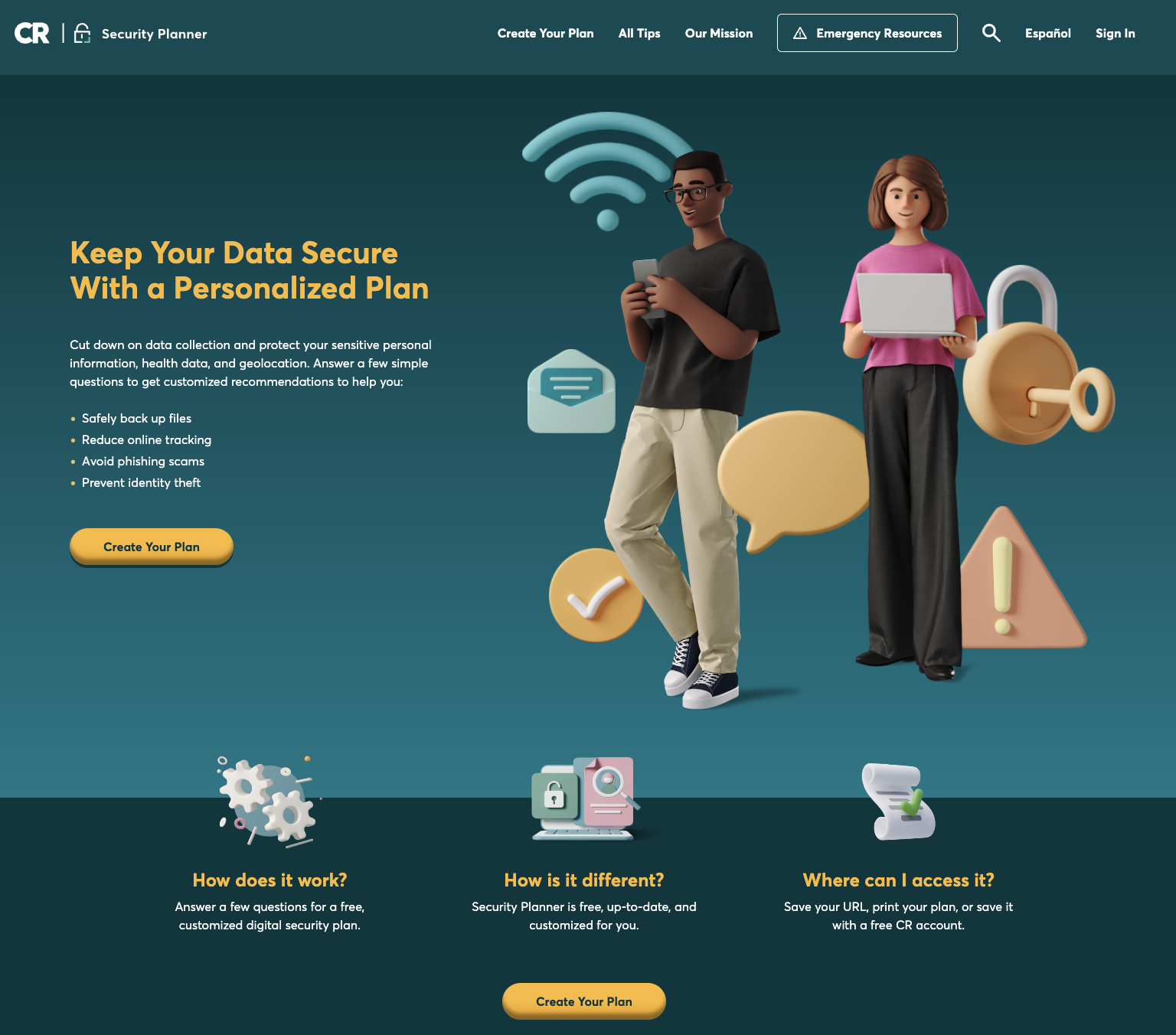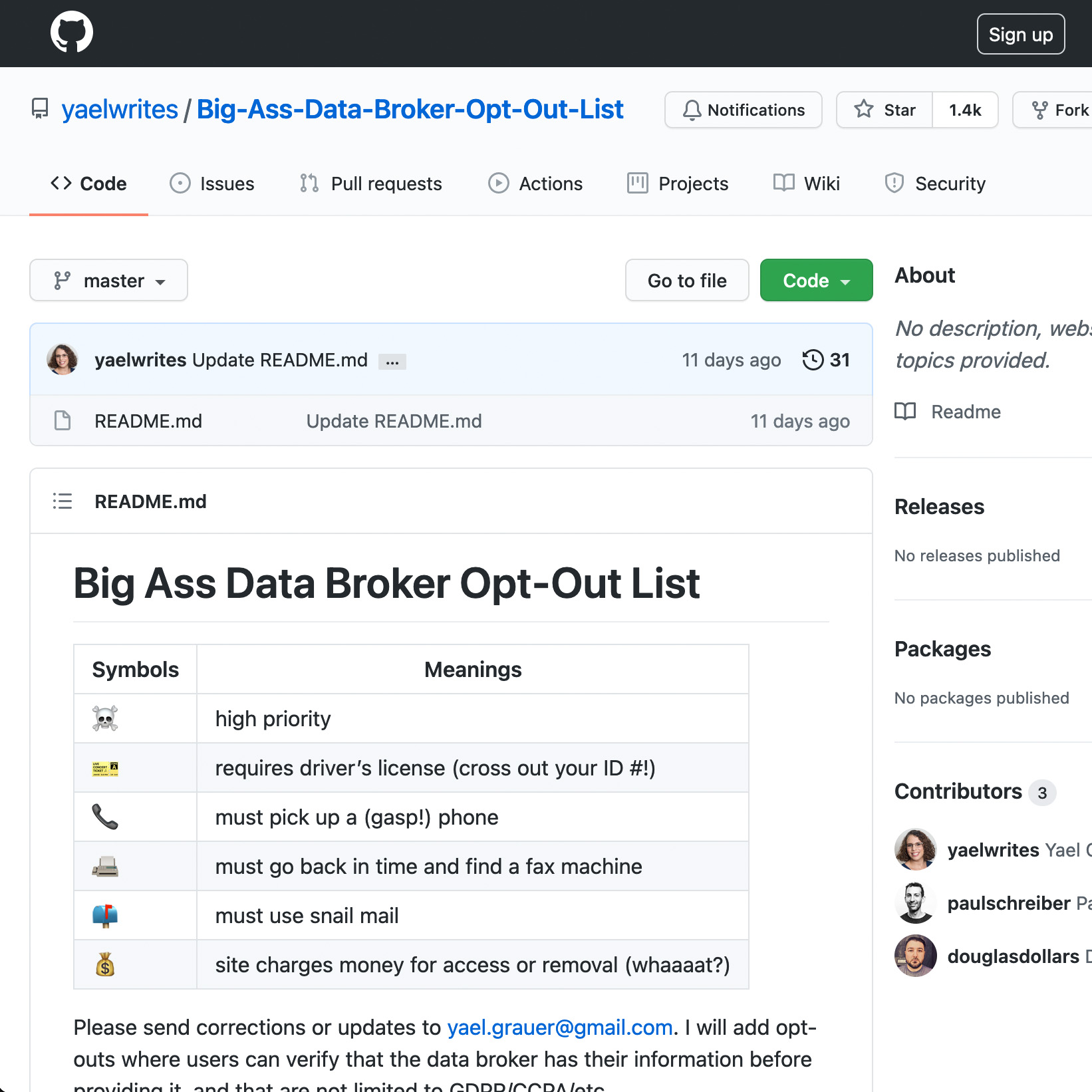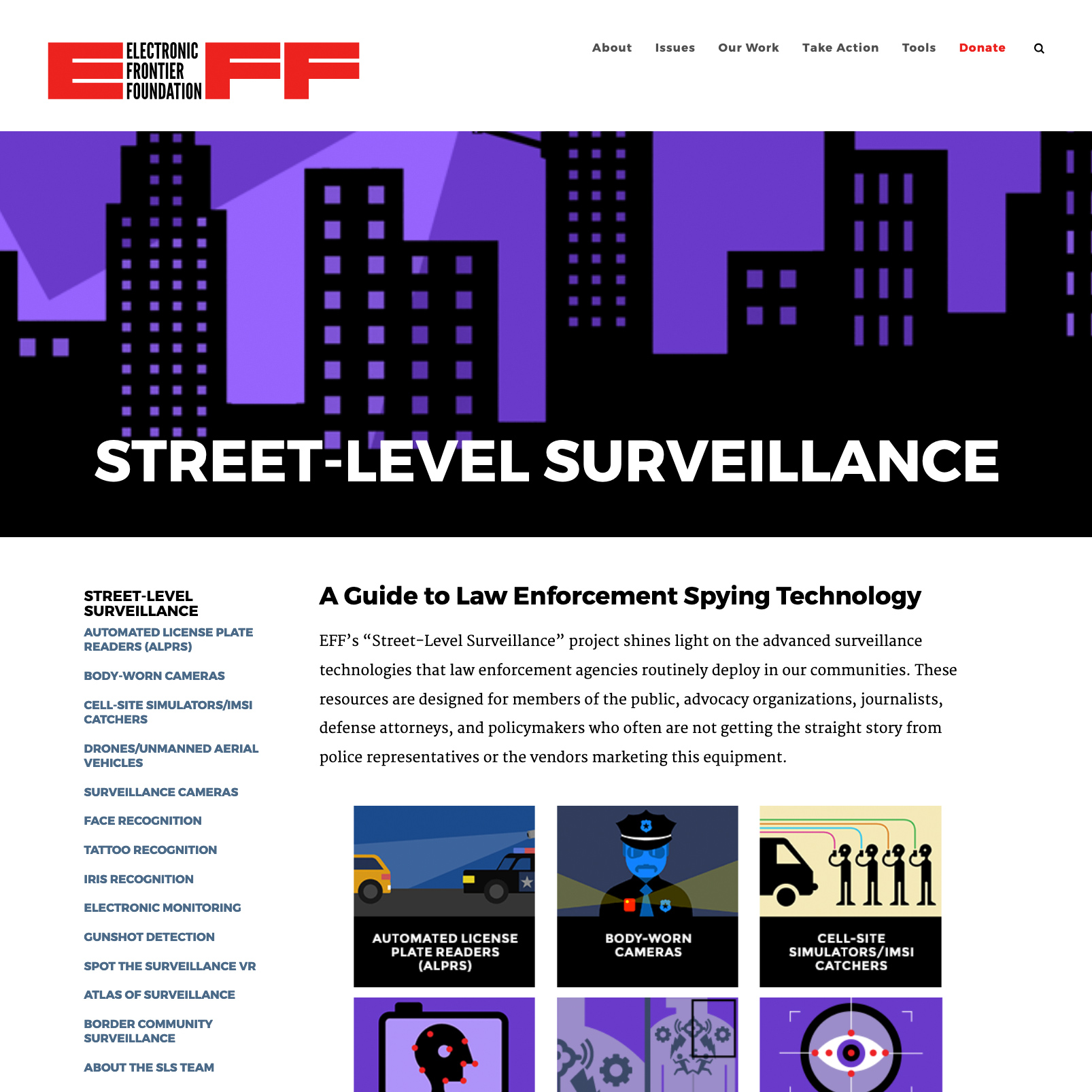Security Planner

Security Planner is Consumer Reports’ free, easy-to-use guide to staying safer online. It provides personalized recommendations and expert advice on topics such as keeping social media accounts from being hacked, locking down smart speakers and home security cameras, and reducing intrusive tracking by websites. This tool builds upon the work of the Citizen Lab, which originally launched and managed the project. In 2024, we launched a complete rebuild and redesign based on extensive user experience research.
Credit
Product and program manager
Impact
Security Planner has been cited in guides, reports, trainings, and resources by at more than a dozen organizations and publications, including Access Now, Amnesty International, Cybersecurity and Infrastructure Security Agency (CISA), Common Sense Media, the Cyberbullying Research Center, Equality Labs, Forbes, Front Line Defenders, Freedom of the Press Foundation, the Games Hotline Digital Safety Guide, PEN/Artists at Risk Connection, SaferJourno, SMEX, Society for Environmental Journalists, Tall Poppy, This Week in Security, and UC Berkeley Information Security Office’s Resources for Prevention and Response to Online Harassment. It is included in CISA’s High-Risk Community Protection Planning webpage, which launched in April 2024 as the product of a year-long collaborative effort led by the Joint Cyber Defense Collaborative (JCDC). It has additionally been cited in USA Today and linked to by Apple. A white paper titled An Evaluation of Online Cyber Security Guides for Journalists by Kristin Berdan at the Center for Long-Term Cybersecurity at UC Berkeley wrote, “Guides like Consumer Reports’ Security Planner are effective partly because they take the reader’s environment, assets, and protection goals and concerns into account before dispensing advice.” Tall Poppy called Security Planner “the best in-depth free and publicly available personal cybersecurity guide.” It has also been incorporated into curriculum at the University of Michigan and University of Nevada, Reno.
Big Ass Data Broker Opt-Out List

The Big Ass Data Broker Opt-Out List is a do-it-yourself guide to removing your personal data (such as your address) from people search run by data brokers, or companies that sell bulk access to people’s personal data, typically without their knowledge, let alone consent. The list is regularly updated and categorizes each of the approaches for removing data from the different data broker portals.
Credit
I’m the creator and maintainer of this project, which has benefited from pull requests and edits from dozens of volunteers.
Impact
This guide has been cited by Wired, New York Times, Consumer Reports, Wirecutter, Tech Crunch, Lifehacker, Vice, Men Yell at Me, HowStuffWorks, the Register, Tall Poppy, PEN’s online harassment field manual, the Games Digital Safety Hotline guide, Zebra Crossing, and Equality Labs. It’s also been used in the Ford Foundation’s Cybersecurity Academy and in trainings by PEN America and Freedom of the Press Foundation. It was cited in Disengage by Linda Formichelli, Containing Big Tech: How to Protect Our Civil Rights, Economy and Democracy, by Tom Kemp, and in the first issue of Whitney Merrill’s awesome new zine, Reflector.
Street-Level Surveillance

EFF’s Street-Level Surveillance project shines light on the advanced surveillance technology that law enforcement agencies routinely deploy in our communities. Its goal is to raise awareness of privacy-invasive police technologies, limit how they are used, and hold agencies accountable for their abuse.
Credit
I wrote SLS in collaboration with EFF.
Impact
This work has been cited in 12 law journals and various regional and state-wide task force reports, trainings, study committees, conferences, and even a Supreme Court case, as well as in written testimony presented to the House Committee on Science, Space and Technology.